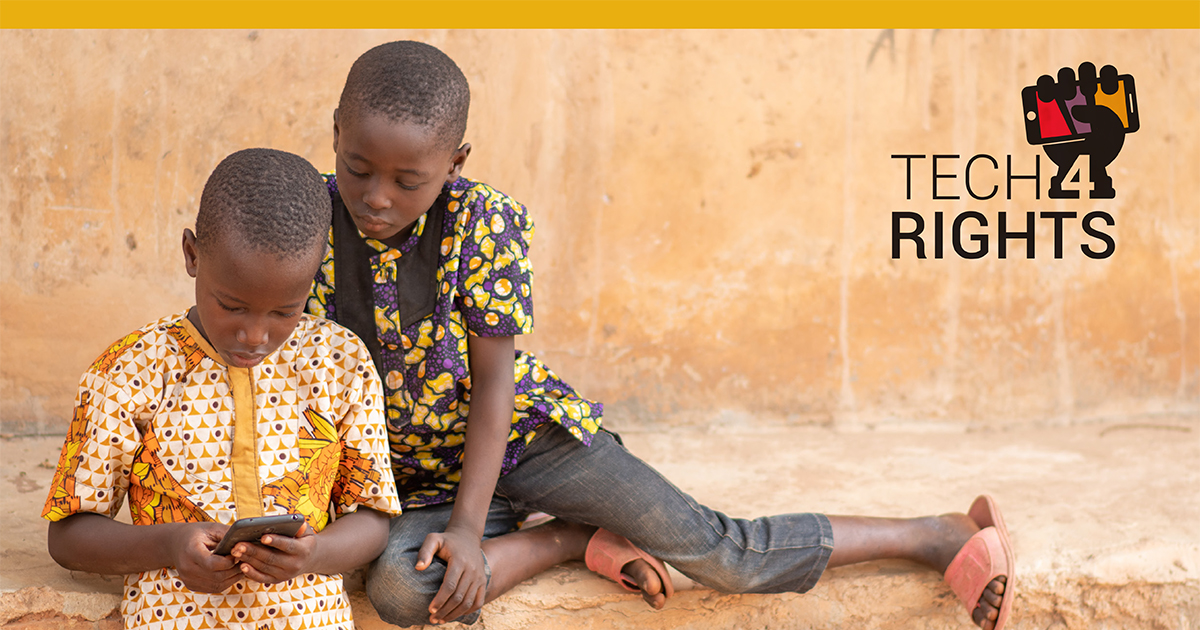On 20 July 2021, the Centre for Human Rights, Faculty of Law, University of Pretoria (UP), held a webinar organised by the Children’s Rights Unit and the and the Expression, Information and Digital Rights Unit. The focus was on children’s rights to privacy in the digital sphere in Africa. This event forms part of the Centre’s campaign #Tech4Rights which focuses on the impact of new technologies on different aspects of human interaction and its impact on human rights.
Webinar on children’s rights to privacy in the digital sphere in Africa
Tuesday 20 July 2021
09:00 GMT / 10:00 WAT / 11:00 SAST / 12: 00 EAT
All participants are required to register on Zoom.
The event will be live-streamed on Facebook and YouTube.
Video
Speakers
Moderators:
- Dr Elvis Fokala, Manager, Children’s Rights Unit, Centre for Human Rights, UP
- Hlengiwe Dube, Manager, Expression, Information and Digital Rights Unit, Centre for Human Rights, UP
Introductory remarks
- Dr Nkatha Murungi, Assistant Director, Centre for Human Rights, UP
An overview of the laws relating to children’s right to privacy and data protection in the digital sphere in Africa
- Prof Julia Sloth-Nielsen, Professor of Law, University of Western Cape
European experience on the child rights to privacy and data protection
- Ms Louise Holly, Advocacy and Policy Consultant on child privacy in the digital sphere
The impact of POPIA on children’s rights to privacy and data protection in a digital sphere and the initiatives that the Information Regulator has taken t o protect children’s online activities
- Ms Varsha Sewlal, Executive: Legal, Policy, Research and Information Technology Analysis
Children’s Rights to privacy and data protection within the context of the private sector in South Africa
- Tina Power, Senior Analyst and Attorney, ALT Advisory and Power Singh Inc
Contextualising the AU Convention on Cyber Security and Personal Data Protection through the lens of Children’s rights to Privacy and data protection in a digital sphere in Africa
- Ms Opal Sibanda, Legal Researcher, Secretariat, African Committee of Experts on the Rights and Welfare of the Child
Discussion
Concluding remarks
- Dr Nkatha Murungi, Assistant Director, Centre for Human Rights, UP
Background
Technological advancements and access to internet have shaped the overall development of global and African economies. In the last two decades, there have been growing concerns with regards to the interaction of technology with people within human rights discourse. This discourse acknowledges the positive contributions of technology, such as those that enhance certain protections and guarantees, as well as those that facilitate human rights violations in other respects.
It is estimated that one in three internet users worldwide is a child (defined as a person under the age of 18 years) and that one in three children have access to internet (Livingstone 2016). Further and perhaps the most worrying statistic is that ‘the number of online activities in which children engage, the digital skills they develop and the online risks they encounter all increase as children get older’ (Livingstone, 2019). This is contrary to the common logic within the child rights discourse which posits that the capacities of children to handle complex issues evolves, and therefore vulnerability to harm decreases with age. This reality raises concerns about the protection of children in the digital sphere and the measures that states should take to address key challenges posed by children’s access to ICT devices and the internet.
Naturally, and in light of the heightened risks, the narrative regarding the protection of the privacy rights of children in the digital era has tended towards a protectionist and reactionary approach. Internet users, regardless of age, face pronounced privacy risks, but children are more susceptible. Through engaging in online activities, their personal data is collected, either voluntarily or automatically, with little regard for the implications of sharing such personal information for their privacy in the short and long terms. Yet, these risks coexist with a need to promote children’s access to internet and technology as a necessity for their learning, development and general relevance in the 21st century and beyond. The need for an enabling regulatory legislative and policy framework for this purpose is therefore clearly evident.
Objectives
- To draw the attention of the public to issues arising in the context of the rights of children in the digital sphere in Africa
- To share perspectives from ongoing research on children and digital rights
- To inform a regional approach to the protection of children’s rights in the digital context in Africa
- To urge African Union (AU), Member States to ratify the AU Convention on Cyber Security and Personal Data Protection
Contacts
For more information, please contact:
Dr Elvis Fokala
Manager, Children’s Rights Unit,
Centre for Human Rights, Faculty of Law, University of Pretoria
elvis.fokala@up.ac.za
www.chr.up.ac.za


